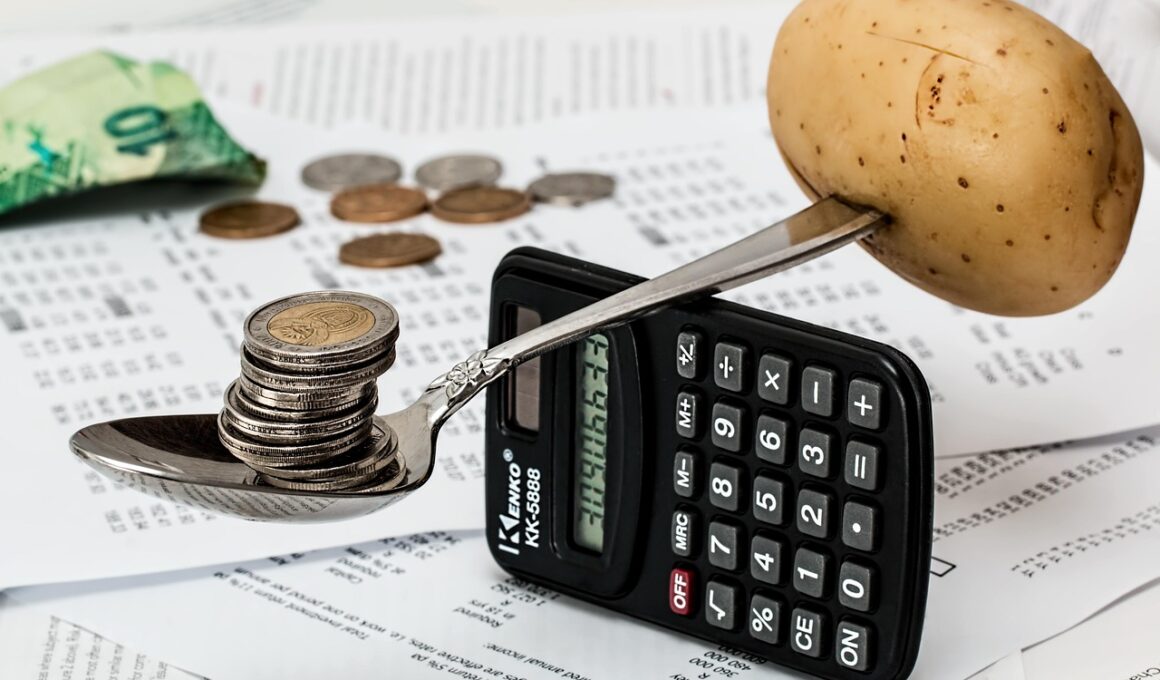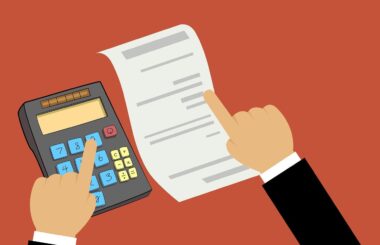How to Create a Monthly Budget and Stick to It
Creating a monthly budget is essential for gaining control over your finances. When you lay everything out carefully, it allows you to visualize where your money goes each month. Start by logging all your sources of income and outlining your fixed expenses, such as rent and utilities. Next, categorize your variable expenses, including groceries and entertainment. Track them meticulously, ensuring you don’t overlook anything. You can use a simple spreadsheet or budgeting app to assist in this process. One common recommendation is the 50/30/20 rule, suggesting you allocate 50% of your income to needs, 30% to wants, and 20% to savings or debt repayment. By following this method, you can prioritize your financial responsibilities while allowing room for personal enjoyment. Instead of feeling constrained, consider this an opportunity to assert beneficial habits. Regularly updating your budget will enable you to stay on track and adapt to changing financial situations. The ultimate goal is to build a budget that not only serves your current needs but also sets you up for future financial success. Consistency is crucial; review your budget every month.
Establishing Financial Goals
One important step after creating a budget is establishing clear financial goals. Setting specific, measurable, achievable, relevant, and time-bound (SMART) goals provides clarity. Start by determining what you want to save for: an emergency fund, vacation, or perhaps purchasing a home. Once you’ve identified your goals, break them down into smaller milestones that can be achieved over time. For example, if your goal is to save $6,000 for a vacation, aim to save $500 each month. This makes the overall target feel more manageable and less overwhelming. Additionally, track your progress regularly and celebrate small wins along the way. This not only keeps motivation high, but also reinforces positive spending habits. Consider adjusting your budget categories to accommodate these goals. For instance, you might decide to reduce discretionary spending temporarily to enhance savings. Utilizing apps designed for goal tracking can also offer visual progress indicators. Remember to remain flexible; if unforeseen expenses arise, adjust your goals accordingly. As you experience small successes, you’ll increase your commitment to budgeting and saving, cultivating a healthier financial future.
To succeed in sticking to your budget, it’s vital to conduct regular reviews of your finances. Monthly check-ins allow you to evaluate your progress against your goals and make necessary adjustments. During these reviews, analyze spending patterns and identify places where you may have overspent. This includes looking at both fixed and variable expenses. If certain categories consistently exceed your budget, consider recalibrating. You might need to reduce spending in other areas or increase income sources. Using budgeting tools, such as apps or spreadsheets, can also facilitate this process by providing a clear summary of your finances. Additionally, keep an eye on seasonal expenses, like holidays or school supplies, which can disrupt your normal budget. Preparing for these recurring events allows you to allocate funds ahead of time. Regularly reviewing your budget instills better financial awareness and encourages patience. It will also help avoid the panic that often accompanies unexpected expenses. Staying proactive paves the way for building consistent habits, ultimately enhancing your financial literacy and stability. The more diligent you are in reviewing your finances, the more control you’ll feel over your financial situation.
Utilizing Technology for Expense Tracking
Modern technology provides numerous tools that can simplify expense tracking and budget management. Savvy budgeters often turn to applications and software designed for finance tracking. These tools provide a user-friendly interface for logging your expenses, categorizing purchases, and generating reports. This means you can access data quickly to see spending trends and insights at a glance. Popular budgeting tools such as Mint, YNAB (You Need A Budget), or PocketGuard consolidate your finances in one digital space. They can also connect directly to bank accounts, allowing real-time tracking without manual entry. Set notifications for transactions that exceed set limits, helping to curb impulsive spending. You can also generate visual charts that illustrate how well you’re adhering to your budget, providing motivation to stick to your goals. If you prefer a more hands-on approach, spreadsheets are excellent for those who enjoy custom setups. They allow for personalized budgeting styles and calculations. Regardless of the tool you choose, leveraging technology in your financial management will streamline your efforts, saving you time while enhancing your overall awareness of spending habits.
Another beneficial strategy in maintaining a budget is practicing mindfulness around spending habits. By consciously considering each purchase, you cultivate a more discerning approach to your finances. Before making any non-essential purchase, take a moment to ask yourself if it aligns with your financial goals. Waiting 24 hours before committing to a purchase can minimize impulse buying. This simple pause gives you time for reflection and may prevent regret later. Create a habit of comparing prices, looking for sales, or utilizing coupons before spending. Explore community resources, such as local buy-sell-trade groups, to access items at lower costs. Mindfulness can significantly affect budgeting by allowing you to prioritize truly valuable expenses over fleeting desires. Reflect on how a purchase contributes to your overall happiness and financial health. Surround yourself with supportive individuals who share similar financial goals, fostering an encouraging environment. This accountability can also reinforce positive behavioral changes. Building a community or find an online group dedicated to budgeting can help keep you motivated and focused on maintaining your financial discipline for long-term success.
Adjusting Your Budget as Needed
Life circumstances frequently necessitate changes in your budget, so remain flexible. A good budget is not a static document; it needs adjustments to reflect current realities. Whether it’s a job change, a new family member, or unexpected medical expenses, it’s crucial to anticipate these changes. Make a habit of reviewing your budget after significant life events to ensure it accurately reflects your financial landscape. If expenses increase due to a significant change, consider ways to reduce costs in other areas. Increasing your income, through side gigs or promotions, can also help balance your budget. Don’t shy away from revisiting your financial goals and redefine them based on your journey. Tracking your progress over time will help you understand what works well and what doesn’t. It is also essential to remember that even when there are bumps in the road, success can still happen. Many people experience financial ups and downs, so staying resilient will help you adjust to any situation easily. Being adaptable is key in navigating the financial world, ultimately leading to better financial health and security.
Lastly, accountability plays a significant role in maintaining a monthly budget. Whether through personal reflection or external partnerships, having an accountability system in place encourages commitment. Consider partnering with a friend or family member who shares similar budget goals. By regularly discussing your financial progress, you enhance motivation and discipline. Alternatively, you can join online forums or social media groups focusing on personal finance. These platforms offer supportive communities that share tips, resources, and celebratory milestones, creating a supportive atmosphere. In essence, the more you engage with others about your budgeting journey, the more robust your commitment will be. Scheduled monthly meetings or check-ins can serve as accountability points. To enhance self-monitoring, keep a journal to document your thoughts, challenges, and successes. This can foster mindfulness about your financial habits while allowing you to reflect on your progress over time. Accountability serves as a driving force, ensuring you remain focused on your goals. Ultimately, by securing accountability, you enhance your chances of budget adherence and foster a healthier financial lifestyle for yourself.
By following these strategies, creating and maintaining a monthly budget becomes an achievable and empowering process. Building healthy financial habits may seem challenging at first, but the insights and financial health gained over time are invaluable. With dedication and intention, you can master your finances, setting a strong foundation for your future goals. It’s never too late to start your budgeting journey or refine your existing approach. Embrace the power of budgeting and let it guide you toward achieving financial stability, resilience, and peace of mind. Always remember that every small step contributes to a larger journey, so celebrate progress, no matter how minor it may seem. Cultivating budgeting skills leads to better decision-making and empowers you to spend purposefully. In conclusion, a monthly budget is not merely a tool for tracking expenses; it symbolizes your commitment to financial well-being. So take charge of your finances today! Aim towards a brighter financial future where goals are met, and true contentment is found. Stay motivated, keep learning, and continue adjusting your strategies as needed for lasting success.





